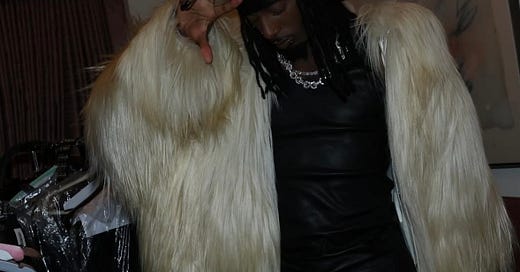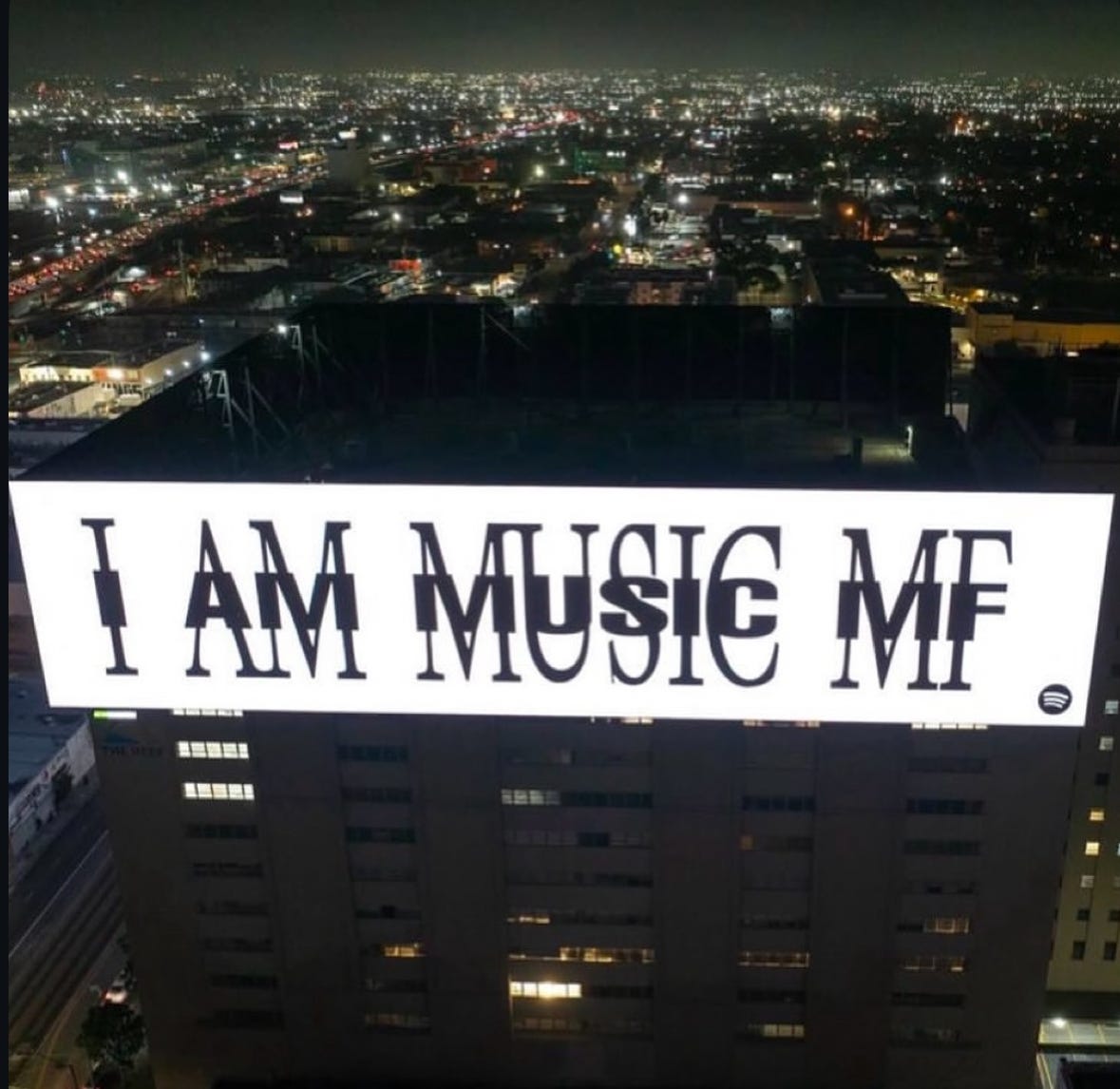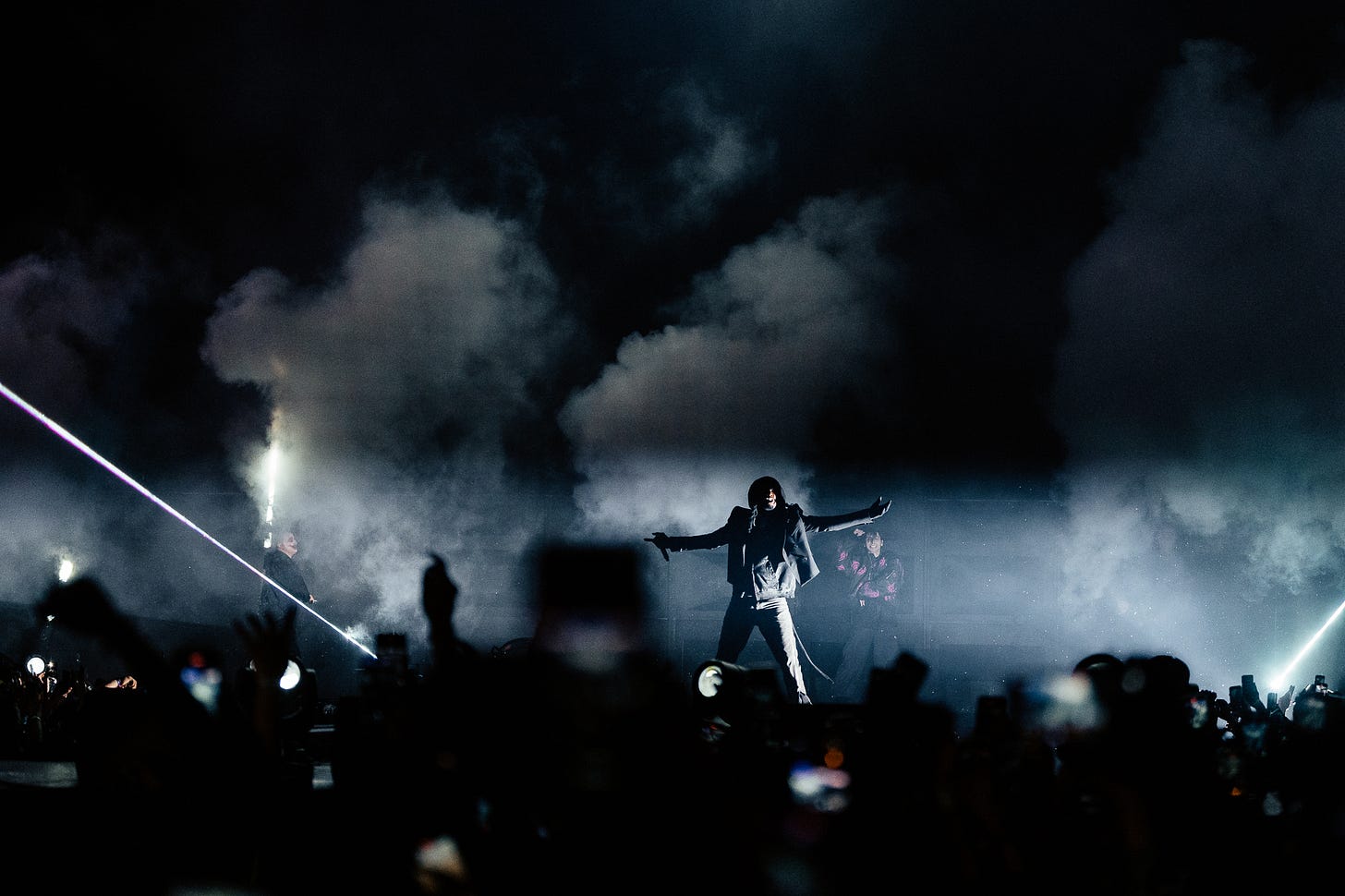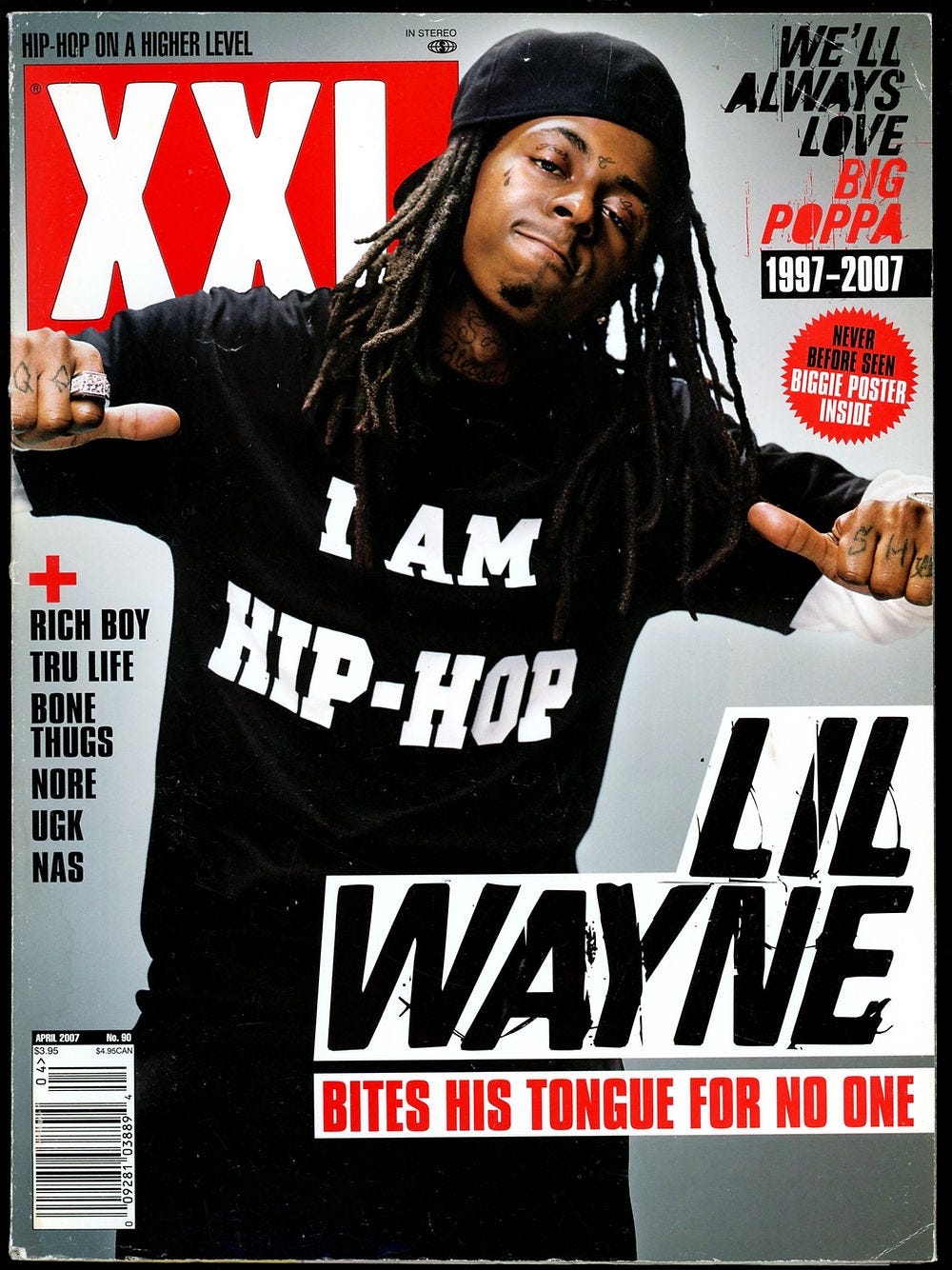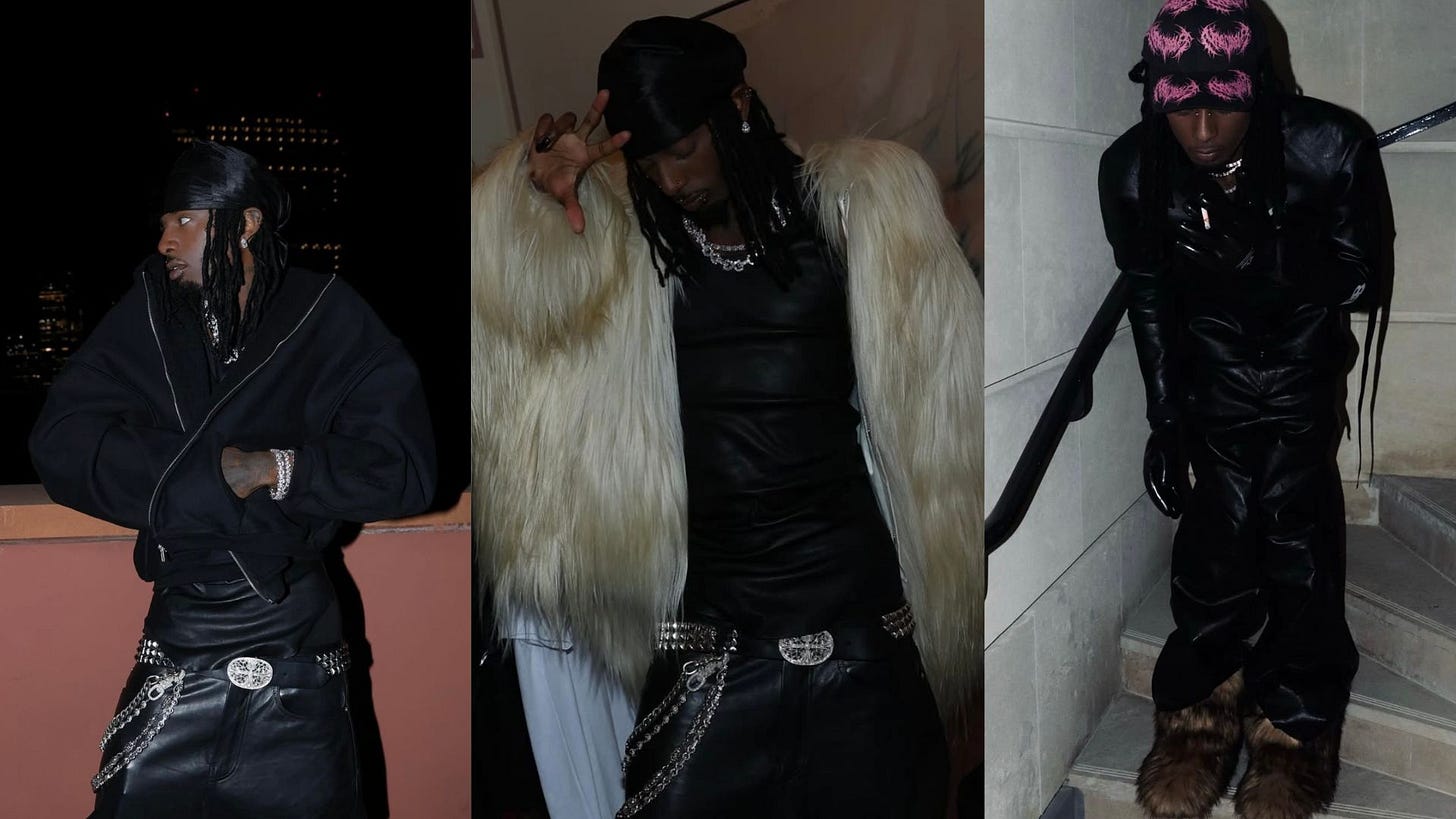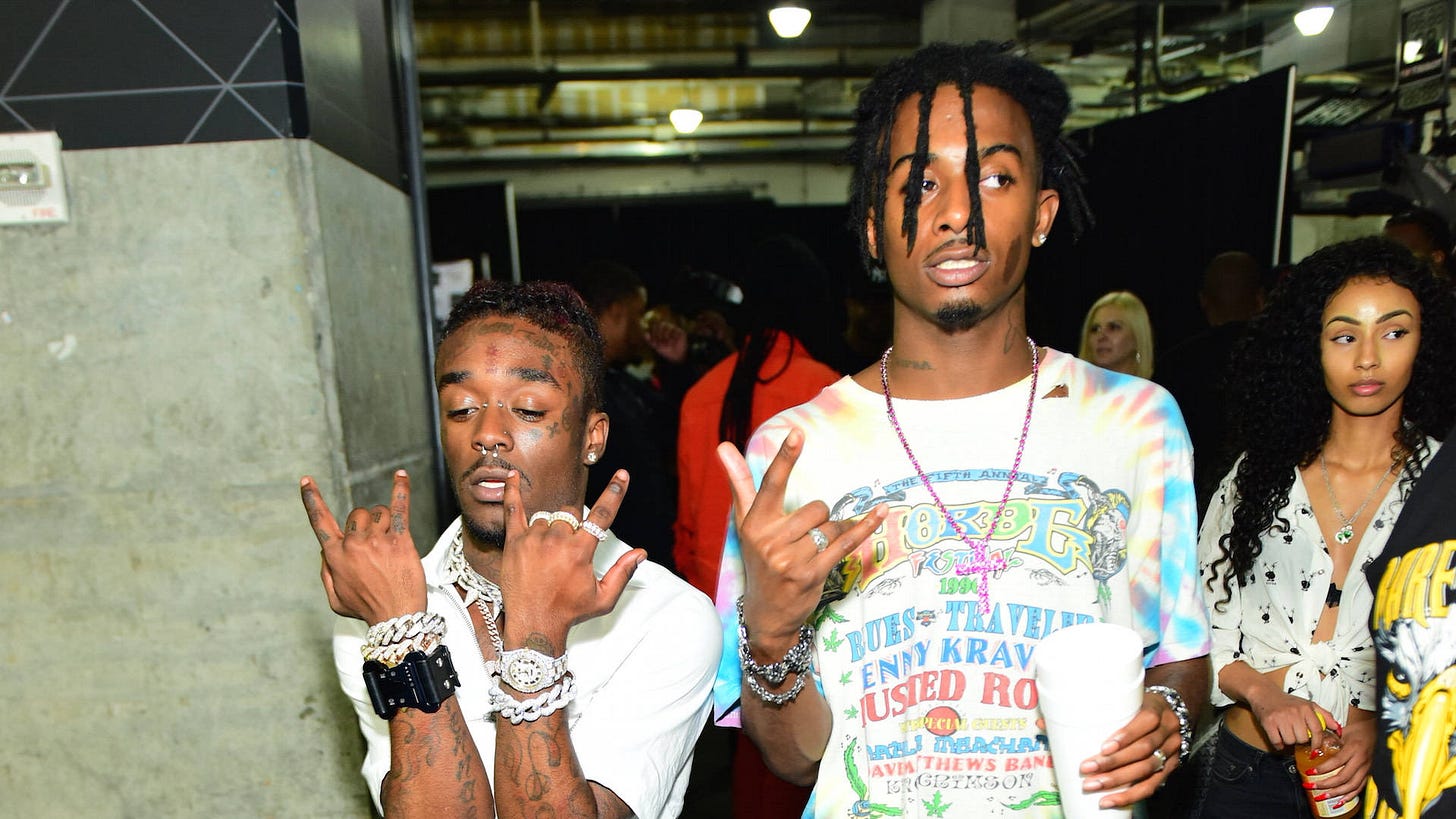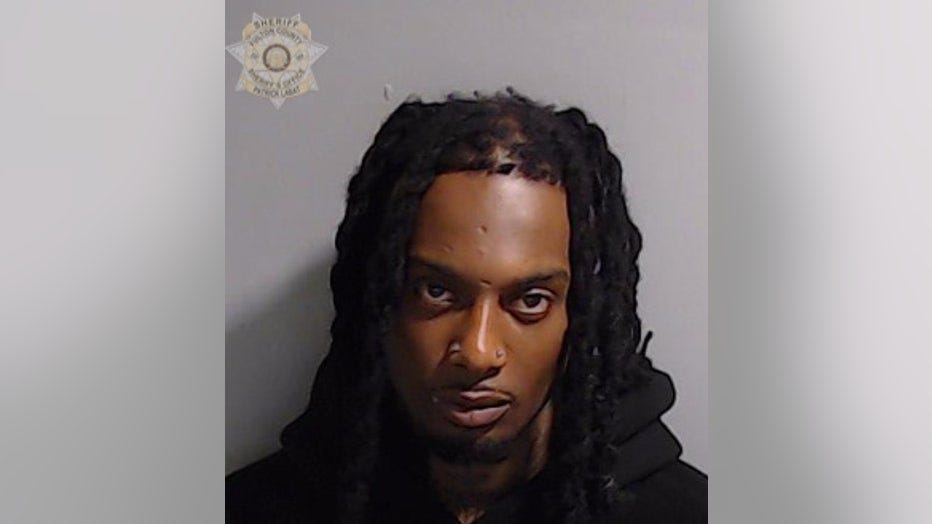I am in desperate need of a new hyperfixation
It’s been over a month since “MUSIC”, Playboi Carti’s third studio album was finally released on March 14. On the morning of, my mom was visiting, so I got up early and raced downstairs with my headphones so as not to disturb her. Without wasting a moment, I binged all 30 tracks (34 on the deluxe version, “MUSIC - SORRY 4 DA WAIT”) before 9am EST.
Despite this, I wouldn’t really call myself a die-hard Carti fan, at least not by choice. I didn’t care for most of his last album, “Whole Lotta Red”, and after it dropped in 2020 I gave up hope that he’d ever release another one again. I got tired of his insufferable fanbase, the false rumors, leaked tracks and the famed “NARCISSIST” tour cancellation.
Now, more than five years later, as hypocritical as it may be, I can’t seem to stop listening to “MUSIC”.
Promotional billboard for Playboi Carti’s third studio album, “MUSIC”. Courtesy of Complex via Instagram.
I’d love to pretend it’s because I’m a sucker for some good world-building. There’s a lot to say about Carti and his “Opium” movement, but seeing the integration of Y2K-era hip hop in both his new music and personal style has been fascinating from an artistic perspective.
In reality though, what really draws me to the album is what makes all great recession pop memorable: hedonism. A wholehearted, unapologetic embrace of life’s pleasures in the face of a societal crisis. It was the same driving force behind Gorillaz’ “Feel Good Inc.”, “Tik Tok” by Kesha and even Charli XCX’s “BRAT”. Only now, as our political landscape and societal values shift farther to the right, responses to conservatism in popular culture are becoming more extreme in turn.
Playboi Carti performed cuts from “MUSIC” during his headline set at Rolling Loud California 2025. Courtesy of @itchyeyephotos.
The best illustrator of all these ideas on Carti’s new album also happens to be my favorite track: “LIKE WEEZY”. Using a sample from “Bend Over” by The Rich Kidz and Money Savage Hosted by DJ Kutt Throat (an Atlanta-based hip hop collective), producers Kelvin Krash and Ojivolta craft a beautifully chaotic beat for both Carti and DJ Swamp Izzo.
The song touches on many of the same themes associated with “Weezy”, one of the OG nicknames for Lil Wayne, and his music. Drinking lean, counting money, and sex… in other words, “a whole lotta motherfuckin’ drugs / a whole lotta motherfuckin’ cups”.
On March 19, Carti released the official visualizer for “LIKE WEEZY” on YouTube. The video uses footage of him singing what is obviously a different song, mixed with clips of him and the homies next to their Bentleys, smoking and throwing cash at a strip club. Many of them are dressed in True Religion denim and iced-out jewelry: both also popularized by Lil Wayne, Chief Keef and other rappers in the early 2010s.
Lil Wayne on the cover of XXL Mag in 2007. Courtesy of Rapzines.
Even though I was only seven years old when Lil Wayne dropped “A Milli”, on some level I could still register the connection between his music and fashion influence at the height of his career. He was a pioneer in terms of fusing the two with skate culture, pairing True Religion and Bape with his own brand, Trukfit in music videos and on the red carpet.
Carti is also now a certifiable fashion icon, having modeled for brands like Givenchy, Off-White and Louis Vuitton all before the age of 24. More recently, he’s been credited with ushering in the age of “Opium” (his record label): a dark, shapeless amalgamation of punk rock, goth, streetwear and high-fashion.
Carti modeling the “opium” aesthetic. Courtesy of @opium_00pium via Instagram.
Watching Carti’s reference points for music and fashion change over time is what’s kept him relevant, at least to me. I remember when he was rocking Supreme, clout goggles and skinny jeans back in 2016 as a defining moment in the “hypebeast” era of men’s fashion; also when my love for clothes grew beyond just sneakers, mostly because of hearing other artists rap about buying more vintage and archive pieces.
Playboi Carti and Lil Uzi Vert, both genre-defining artists in the “Soundcloud” era of hip hop. Courtesy of Wallpapers.com.
As nostalgic as “MUSIC” and this current era of Carti may be for some, it certainly is not without its flaws. Embracing hedonism as a response to tyranny is a difficult venture, and there are certainly currents of misogyny and violence that run heavy throughout the album. That’s not uncommon in contemporary hip hop, but it is worth mentioning to avoid glorifying the cult of personality Carti has created.
For context, Carti founded his “Opium” record label in 2019 and has since signed Ken Carson, Destroy Lonely and Homixide Gang (composed of Meechie and Beno) as additional talent. As they emerged from the underground rap scene together, allegations of physical and domestic abuse have followed all of these artists through recent years.
Carti himself was also charged with felony aggravated assault for choking his pregnant girlfriend in December 2022, and has been open about his friendship with registered sex offender, ASAP Bari (also featured in the video for “LIKE WEEZY”) for years.
On the new album, a rather chilling line from “FINE SHIT” shows no remorse: “don’t say you’ll ride for me, lil bitch, just ride / don’t say you’ll die for me, lil bitch, just die”.
Jordan Terrell Carter, a.k.a. Playboi Carti’s mugshot from December 2022. Courtesy of the Fulton County Sheriff’s Office via FOX 5.
All in all, I feel I enjoyed the album in the way it was meant to be: consumed immediately, without fear or thought of consequence. Of course, that’s because the thoughts about who created it and why are about enough to spoil “MUSIC” for anyone with empathy.
Maybe that’s why one of my friends described it as “BRAT summer, but for men with restraining orders”. There has to be a world where music that’s anti-establishment isn’t also anti-women.
As talks about what will be the “album of the summer” draw near, I’m hoping to hear less about Carti and more about what other artists are working on. With A$AP Rocky, Aminé, Wiz Khalifa and so many others expected to drop, there will have to be more additions to the conversation and, god willing, less problematic artists who participate.
